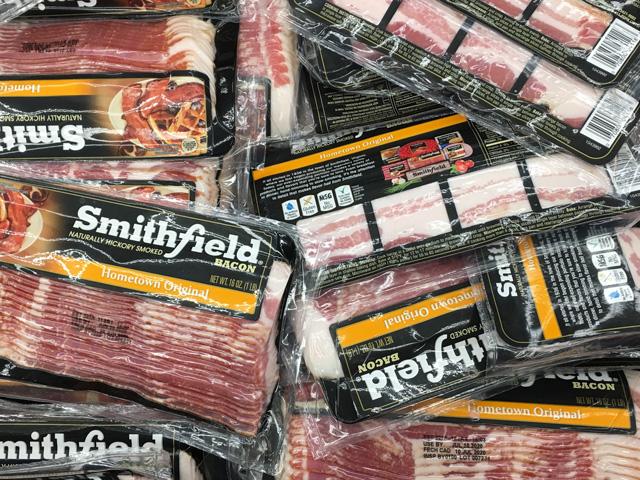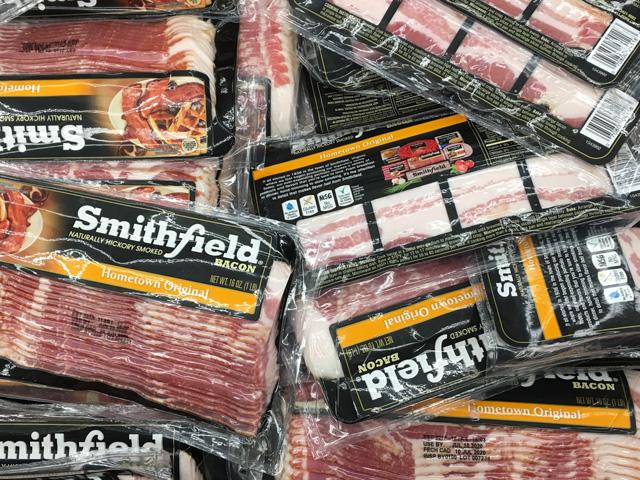Ag Policy Blog
GOP Conservatives Oppose EATS Act Over Chinese Influence in US Pork Industry
A group of ten House conservatives on Friday added their voices to opposing a bill introduced to reverse the Supreme Court's decision last year on California's Proposition 12, saying the bill would help foreign-owned pork production "under the control of the Chinese Communist Party."
The letter to the chair and ranking member of the House Agriculture Committee by the ten Republicans said, "We share with you an unshakeable commitment to our nation's farmers."
Still, the ten Republicans urged committee leaders to not include H.R. 4417, the "Exposing Agriculture Trade Suppression (EATS) Act, or any similar language that serves to nullify state laws and standards for agricultural production in the 2024 Farm Bill."
The ten Republicans in their letter focused heavily on the influence of foreign national companies on the pork industry.
The letter was led by Rep. Anna Paulina Luna, R-Fla., and co-signed by Rep. Bob Good of Virginia, chairman of the conservative House Freedom Caucus, as well as Reps. Byron Donalds and Matt Gaetz of Florida, Marjorie Taylor Greene of Georgia, Nancy Mace of South Carolina, Andy Biggs of Arizona, Matt Rosendale of Montana, Jeff Van Drew of New Jersey, and Tim Burchett of Tennessee.
P[L1] D[0x0] M[300x250] OOP[F] ADUNIT[] T[]
None of the lawmakers who signed the letter serve on the House Agriculture Committee. The EATS Act was introduced last June by Rep. Ashley Hinson, R-Iowa, a month after the 5-4 Supreme Court decision that upheld California's Prop 12. Sen. Roger Marshall, R-Kansas, led the introduction of an identical bill in the Senate.
Prop 12 prohibits sales of pork in California from swine not provided at least 24 square feet of floor space during birthing and weaning. The law essentially sets standards for pork production outside of California for any meatpacker wanting to sell pork within the state.
Friday's letter from some of the most conservative members of the House follows a letter last August from 171 House members and 30 members of the Senate who also opposed the EATS Act. That letter was led by House Democrats.
Agriculture Secretary Tom Vilsack told House Agriculture Committee members that agricultural producers are going to face "chaos in the marketplace" if Congress doesn't address the Prop 12 case. Vilsack pointed out that "chaos" can be created when each state has the ability to define for itself what farming techniques or practices are appropriate.
"I'm not sure that this Congress is going to be able to pass legislation, but in due respect, I would suggest that if we don't take this seriously, we're going to have chaos in the marketplace. That's because there's nothing preventing any state from doing what California did."
The government of Canada could bring a trade case against the U.S. over the situation as well because Canadian farms exported 6.7 million hogs to the U.S. in 2023 as feeders or direct to slaughter.
The Republicans in their letter said they are "gravely concerned about the infiltration of American pork production by foreign adversaries," pointing to the Chinese-ownership of Smithfield Foods and the $5 billion loan from the Bank of China that helps finance the purchase "of this one-time, legacy American-owned farm business." The lawmakers also pointed to the U.S. pork production of Brazil's JBS, noting that "just two foreign companies control production and distribution of 40% of the U.S. pork supply."
The EATS Act, the lawmakers stated, "is simply a veiled attempt by these foreign-owned corporations to subvert the will of American voters." The lawmakers added that California and Massachusetts, which has a similar law now, would take up just 6% of the pork market, though other industry estimates put the California market higher than that.
The lawmakers said Congress should protect the interests of American farmers and not abandon long-held principles of federalism. Instead, "Congress should focus on reducing Chinese influence on American production agriculture."
The letter can be viewed at https://animalwellnessaction.org/…
Chris Clayton can be reached at Chris.Clayton@dtn.com
Follow him on X, formerly known as Twitter, @ChrisClaytonDTN
(c) Copyright 2024 DTN, LLC. All rights reserved.






Comments
To comment, please Log In or Join our Community .